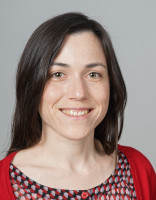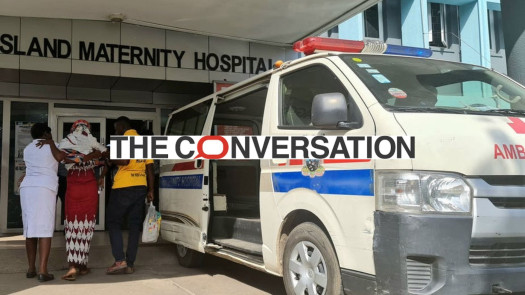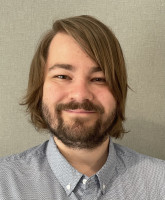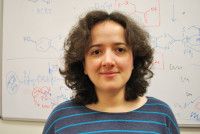Women's Health
Healthcare Systems
Pregnancy & Maternal Health
Public Health & Health Policy
Emergency Care & Crisis
Post-Doctoral Fellowships
United Kingdom
2019.08.31
Towards timely and quality access to emergency obstetric care in Sub-Saharan Africa
At least four out of ten women develop unpredictable complications during pregnancy, childbirth and/or after delivery. Globally, over 300,000 women still lose their lives annually due to problems such as hemorrhage, hypertension, obstructed labor, infection and complications of unsafe abortion. For lack or insufficiency of access to medical assistance, almost all these deaths (99%) occur in low-and middle-income countries. «It has long been established that three delays are associated with maternal deaths: delay in decision to seek care, delay in travel to an appropriate health facility, and delay in receiving appropriate care upon arrival at the facility», reports Dr Aduragbemi Banke-Thomas, an AXA Grantee at the LSE Health research centre in London. To contribute to efforts aimed at reducing maternal mortality, the researcher is investigating the second of these delays – delay in travel to an appropriate health facility, especially as it relates to access to critical emergency obstetric care (EmOC) in Lagos, Nigeria. More specifically, his objective is to estimate the actual geographical coverage of comprehensive EmOC in the state and to identify coverage gaps that exist in areas where women are unable to reach facilities in the two-hour optimum time recommended by the World Health Organization. the project aims to provide policy makers with critical evidence on how to strategically improve access to timely and quality emergency obstetric care.
«The current standard for assessing EmOC geographical access simply focuses on mapping straight-line distances between facilities and residences of women. It does not take into account the convoluted travel of women from the community to EmOC facilities due to geographic and urban barriers», Dr. Banke-Thomas regrets. This doesn’t take into consideration what stands between the women’s places of residence and the facility. «You could have Mount Everest in between, they wouldn’t know! Straight lines don’t reflect the reality of travel times. Several factors come into play, like modes of transport, traffic jams, time of the day, etc.» Hence, the researcher aims to investigate the actual travel experiences of women from their places of residence to EmOC facilities, with the objective of taking into account all factors that come into play. Moreover, he will focus his investigation on comprehensive EmOC facilities, which are supposed to provide 24-hour blood transfusion and caesarean section care services.
Giving stakeholders the keys for strategic emergency obstetric care service provision
To carry out the study, Dr Banke-Thomas and his team will conduct a survey among women who have required emergency care in one of the Lagos CEmOC facilities over a one-year period. Using questionnaires, and geographical data, their first objective will be to map the actual travel route they took from their places of residence to the CEmOC facility. In addition, the team will investigate the factors that influenced their choice of CEmOC facility, whether they decided to go to the nearest one or not, and why. Meanwhile, they also aim to geo-reference public and private CEmOC facilities that offer 24-hour service, seven days a week, and identify the fully functional ones using a comprehensive facility review. The data gathered in these preliminary steps will feed into the main objective, namely the estimation of the actual geographical coverage of comprehensive EmOC in Lagos. His results will provide critical evidence for developing a predictive interactive digital platform capable of identifying gaps in EmOC service provision, and thus inform strategic care service provision. The findings and recommendations derived will be disseminated among governmental and non-governmental stakeholders in Lagos and elsewhere. «Acting on a political level is paramount! During my previous research, we were able to get buy-in and support from the top echelon of the Ministry of Health. I intend to leverage this relationship and make sure the Ministry is once again on board. They’ve already expressed very strong interest in our work».
By taking a transdisciplinary approach, leveraging knowledge and skills from several fields, including obstetrics, public health, geographical information systems, and other social sciences, Dr Aduragbemi Banke-Thomas’ project takes a remarkably comprehensive look at the issue of physical access to EmOC in Lagos. In this sense, the outputs of this research have the potential to leave a real, and lasting imprint on the functionality of EmOC service planners and policy-makers in the state of Lagos, but not only. Lagos’ high burden of maternal deaths being representative of other low- and middle-income settings, his findings and methodology will be easily exploitable for other parts of Nigeria, as well as other Sub-Saharan countries.

Aduragbemi
BANKE-THOMAS
Institution
London School of Economics and Political Science
Country
United Kingdom
Nationality
Nigerian
Related articles
Mental Health & Neurology
Pandemics & Infectious Diseases
Women's Health
Covid-19
Mental Disorders, Anxiety & Depression
Pregnancy & Maternal Health
Neurodevelopmental Disorders
AXA Award
Spain
2020.08.31
The Effects of the COVID-19 Pandemic on the Mental Health of Mothers and Newborns
Early results are expected in less than 12 months and will help bridge a critical gap in research. Indeed, “in... Read more

Maria
FORASTER





